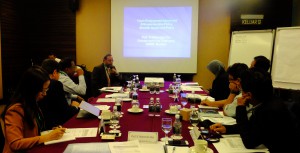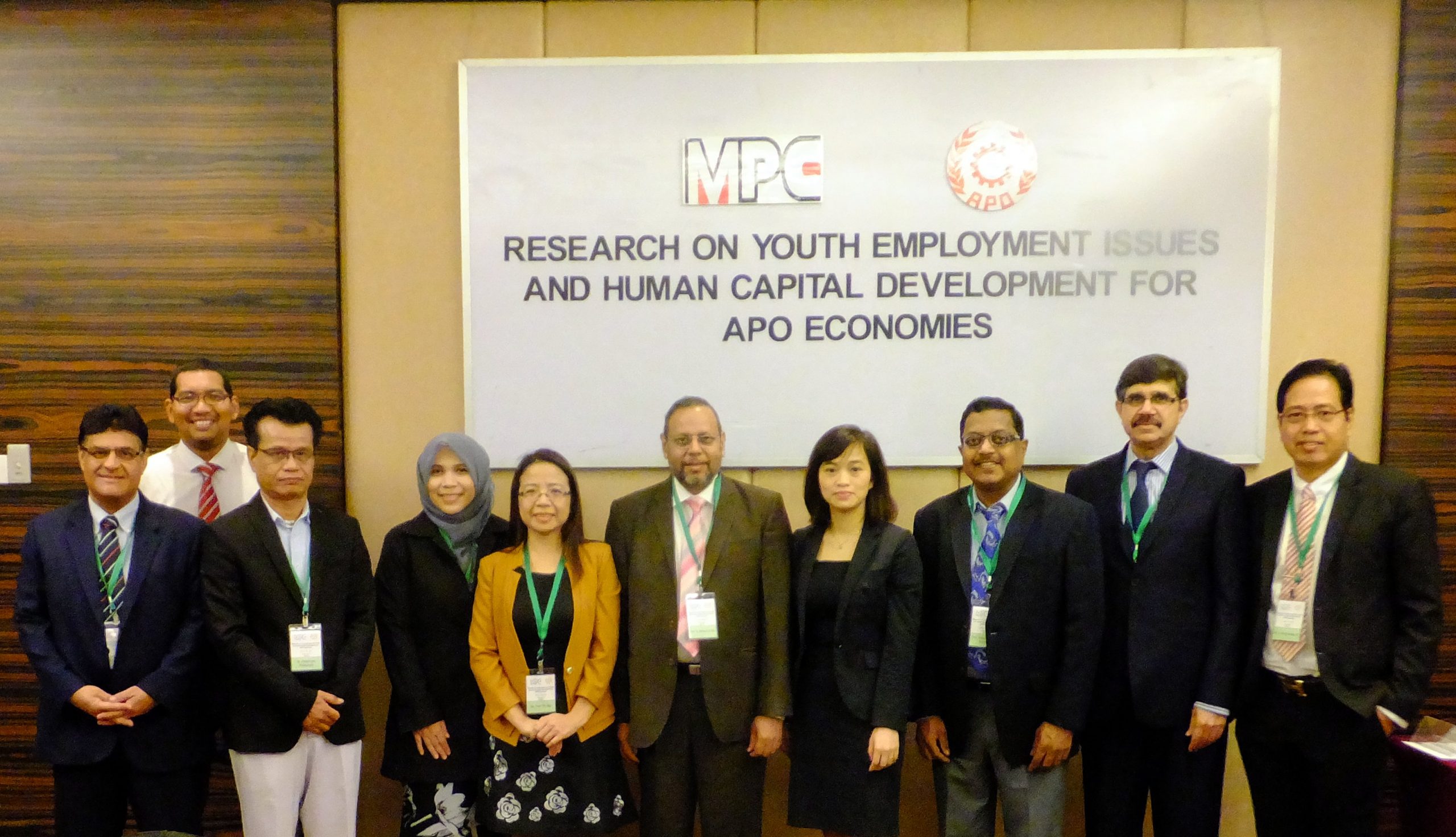
Select Page
The APO recently organized a coordination meeting of experts in Kuala Lumpur, Malaysia, 30 November–2 December, to discuss and finalize the framework and methodology for its research on youth employment issues and human capital development. The meeting was attended by national experts from India, Indonesia, Nepal, Pakistan, Thailand, and Vietnam, led by Chief Expert Prof. S. Mahendra Dev, Vice Chancellor and Research Director of the Indira Gandhi Institute for Development in India.

The Asia-Pacific region accounts for 45% of the world’s youth, defined by the UN as those aged 15–24 years. While new jobs are needed in the next decade to keep up with population growth, young people are still three to five times more likely to be unemployed than adults. In all APO member countries, youth face more than two-fold higher unemployment rates than older individuals. Since most APO member countries are experiencing a “youth bulge,” with the young population outnumbering all other age-groups, there is an urgent need to put in place strategies and policy frameworks to turn this into a demographic dividend.
While many governments have devised public policies and programs to ensure that the increase in the number of working-age youth contributes to productive economic activities in their societies, creating and promoting decent employment opportunities for the young are still challenges. This APO research project is aimed at analyzing the challenges posed by youth employment issues to labor productivity and human capital development and reviewing the policies and programs initiated by member countries for fostering youth entrepreneurship to tackle those challenges.
The research output will identify and design appropriate capacity-building programs that the APO can undertake to help member countries deal with youth employment issues effectively. The expert coordination committee is expected to complete the research by the end of August 2017.
